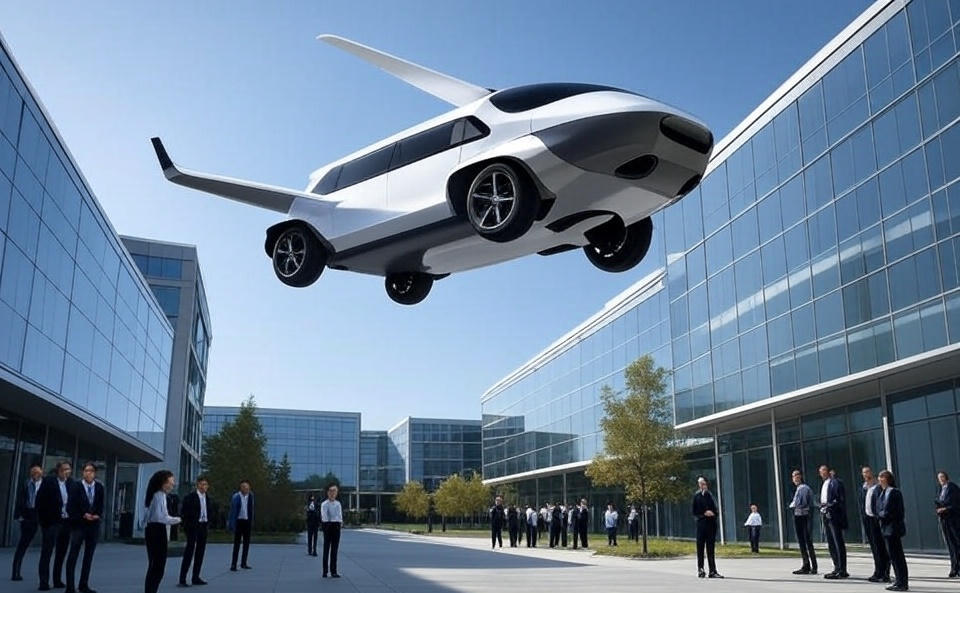Executive Exodus Continues at Hyundai’s Air Taxi Venture Supernal
Urban air mobility has been hailed as the next frontier in transportation, promising a future where air taxis whisk passengers over congested city streets. Among the leading players is Hyundai’s ambitious air taxi venture, Supernal, which has attracted significant attention for its bold vision and advanced prototypes. However, the company has recently been facing turbulence of a different kind: an ongoing exodus of top executives.
Leadership changes in emerging technology ventures are not uncommon, but the departure of key figures at a high-profile startup like Supernal raises questions about the company’s internal dynamics, strategic direction, and ability to deliver on its ambitious goals. For investors, employees, and industry observers, these developments are more than just personnel shifts—they signal potential challenges in execution, company culture, and long-term viability.
We explore the factors driving executive turnover at Supernal, its implications for Hyundai and the broader urban air mobility sector, and the lessons that can be drawn about leadership, innovation, and the pressures of pioneering new technologies.
The Scale of the Exodus
Recent months have seen several senior executives and department heads depart from Supernal. Reports suggest that these exits span engineering leadership, operations, and strategic roles—positions critical to the company’s development of air taxi prototypes, regulatory approvals, and commercialization plans.
-
Engineering Leadership: Departure of key engineers can slow prototype development, as institutional knowledge and specialized expertise leave the company.
-
Operational Management: Losing operations leaders may disrupt manufacturing timelines and supply chain coordination, especially for highly technical components.
-
Strategic Roles: Exits at the strategy level could signal disagreements over company vision, market entry plans, or partnerships.
The frequency of departures has caught the attention of the urban air mobility community, prompting discussions about whether this is a temporary fluctuation or indicative of deeper organizational issues.
Challenges Facing Urban Air Mobility Startups
To understand the context of Supernal’s leadership turnover, it’s essential to consider the broader challenges of the urban air mobility (UAM) industry:
-
Regulatory Hurdles: Air taxis operate in highly regulated environments. Obtaining certifications, complying with safety standards, and navigating aviation authorities can be slow and bureaucratically complex.
-
Technical Complexity: Developing vertical takeoff and landing (VTOL) aircraft requires solving intricate engineering problems, from battery efficiency to autonomous navigation.
-
Market Uncertainty: UAM is a nascent market. Predicting adoption rates, pricing models, and operational logistics remains difficult, creating strategic ambiguity.
-
Investor Pressure: Startups often face pressure to show rapid progress, scale quickly, and deliver results before their technology reaches maturity, which can strain leadership.
These industry-specific pressures help explain why leadership teams may experience friction, burnout, or strategic disagreements—often resulting in high turnover.
Internal Dynamics at Supernal
While external pressures play a role, internal factors are equally critical:
-
Cultural Misalignment: Fast-growing tech ventures frequently struggle to align company culture with growth demands. Leaders may depart when they perceive misalignment with corporate strategy or decision-making processes.
-
Strategic Differences: Conflicting visions for product development, market entry, or partnerships can create tensions at the executive level.
-
Resource Constraints: Despite Hyundai’s backing, startups often operate with lean resources. Limited funding, tight timelines, and ambitious KPIs can create stress that prompts leaders to seek other opportunities.
Industry analysts note that maintaining a cohesive leadership team is particularly challenging in sectors like UAM, where innovation risk, regulatory complexity, and capital intensity intersect.
Implications for Supernal and Hyundai
The executive exodus has both immediate and long-term implications:
-
Project Timelines: Prototype development and regulatory certification may slow if expertise leaves faster than it can be replaced.
-
Investor Confidence: High-profile departures can impact investor sentiment, potentially affecting funding rounds or valuations.
-
Strategic Partnerships: Partners may reassess commitments if leadership instability affects reliability or decision-making.
-
Talent Attraction: Prospective hires may be wary of joining a company perceived as experiencing internal instability.
For Hyundai, Supernal remains a strategic venture in the growing UAM market. Maintaining investor and market confidence will require clear communication, swift replacement of critical leadership, and a reaffirmation of the company’s long-term vision.
Lessons for the Urban Air Mobility Industry
Supernal’s situation highlights broader lessons for other startups in emerging sectors:
-
Leadership Stability Matters: Even the most technically advanced startups cannot succeed without cohesive leadership.
-
Clear Strategic Vision: Alignment among executives on product roadmaps and market strategy is crucial to prevent friction and turnover.
-
Cultural Fit is Key: Recruiting leaders who align with company culture and growth expectations reduces the risk of attrition.
-
Managing External Pressures: Regulatory, technical, and market uncertainties must be mitigated through structured project management and transparent communication.
-
Investor Relations: Managing expectations and communicating progress realistically can prevent panic or loss of confidence during transitions.
Future Outlook for Supernal
Despite the challenges, Supernal continues to make progress:
-
Prototype Development: Early VTOL models are undergoing testing, with an emphasis on safety and efficiency.
-
Regulatory Engagement: Hyundai is actively working with aviation authorities to secure certifications for commercial operations.
-
Strategic Hiring: Efforts are underway to attract new leaders with experience in aerospace, operations, and strategic planning.
If these steps succeed, Supernal could stabilize its leadership and maintain momentum in the competitive UAM landscape. The company’s ability to manage turnover while advancing technology will serve as a benchmark for other startups in this high-risk, high-reward sector.
The executive departures at Hyundai’s air taxi venture Supernal underscore the challenges faced by ambitious technology startups. Leadership turnover can slow progress, impact investor confidence, and complicate strategic execution. Yet, these challenges are not insurmountable. By addressing internal misalignments, reinforcing culture, and maintaining transparent communication, Supernal has the opportunity to regain stability and continue advancing toward its vision of urban air mobility.
Ultimately, the story of Supernal reflects a broader truth: pioneering technologies require not only technical innovation but also strong, resilient leadership capable of navigating uncertainty while inspiring confidence among employees, investors, and society at large.
FAQs
-
Why are so many executives leaving Supernal?
-
Departures are influenced by strategic disagreements, cultural misalignment, and the pressures of pioneering in a complex, regulated industry.
-
-
Does this affect Supernal’s air taxi timelines?
-
Yes, loss of key executives may slow prototype development and regulatory approvals.
-
-
How does leadership turnover impact investors?
-
It can create uncertainty about the company’s ability to execute its strategy, potentially affecting funding or valuation.
-
-
Is executive turnover common in urban air mobility startups?
-
Yes, high-tech, capital-intensive startups in emerging sectors often experience frequent leadership changes.
-
-
What steps is Supernal taking to stabilize leadership?
-
Recruiting experienced executives, improving internal alignment, and reinforcing company culture are key initiatives.
-
-
How might this impact Hyundai’s broader strategy?
-
Leadership instability could temporarily affect investor perception, but Hyundai’s commitment to UAM remains strong.
-
Stay informed about the future of urban air mobility and technology innovation. Subscribe to our newsletter for in-depth analysis, trends, and insights shaping the skies of tomorrow.
Note: Logos and brand names are the property of their respective owners. This image is for illustrative purposes only and does not imply endorsement by the mentioned companies.



